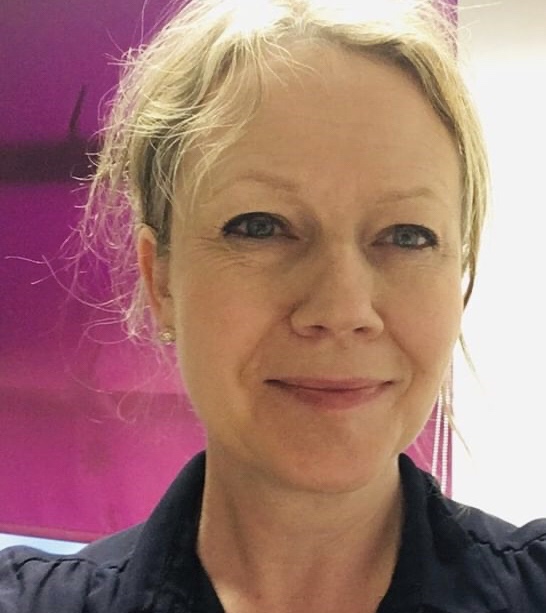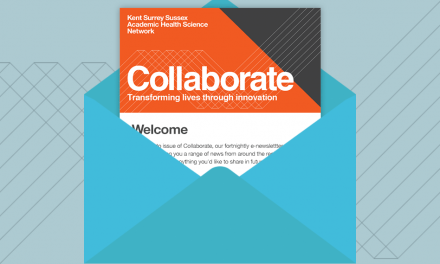To mark World Prematurity Day, we spoke to Helen McElroy, NeoNatal Clinical Lead MatNeoSip and Consultant Neonatologist at Medway Foundation Trust, on the importance of the awareness raising event and to find out more about what is being done, and what still needs to be done, to reduce preterm births and improve survival rates. 
Hi Helen, why do you think it’s important that World Prematurity Day takes place each year?
Anything that raises awareness of prematurity is really important. When you look at the worldwide figures (from the World Health Organisation), there are around 15 million babies born preterm every year. And of that 15 million, we know that about a million babies died from the complications of prematurity.
Worldwide it’s a huge burden, and then when you come down to the UK and look at our figures, there are around 60,000 babies a year are born preterm in the UK, which is around 8% of all births.
This puts us at the higher ends of European preterm birth rates, the rate in France is 6%, and we’re working really hard to get to that six per cent rate by 2025.
That target was set by Jeremy Hunt, then Health Secretary, in 2016. Our preterm birth rate in 2020 was about 7.5%, so we’ve got a long way to go and we’ve only got a few years to get there.
That really highlights the urgency of the work that is taking place across the NHS. There are three main areas that we’re working on – better prediction of preterm labour, identifying risk factors to prevent preterm birth, and then better preparation so that when that baby is delivered, it has the best chance of survival.
What’s the biggest change you’ve seen in the last 10 years?
One of the big things is this focus on safer maternity care, and optimising care for the preterm infant. It’s very much been a top-down drive with lots of money being put into it from the Department of Health to support Trusts and health care professionals to achieve these aims.
Having that focus on improvement from the Department of Health really helped to draw attention to these issues and made the government interested in maternity care and outcomes.
And then in terms of treatment and practice, I think that the biggest impact has come from greater collaboration between neonatal and maternity units involved in neonatal care. We’re now all working together towards the same aims, and I think that has really helped to focus attention.
A great example of that is the increase in the use of magnesium sulphate to reduce cerebral palsy in preterm infants, through the PReCePT programme. This was developed by West of England AHSN and was successfully rolled out through the AHSN Network – at the end of the national programme all 152 maternity units in England had adopted PReCePT.
And what’s the next key area of development?
I think that the PERIPrem care bundle – another AHSN Network initiative – is a very neat quality improvement package that addresses all of the aspects of the MatNeoSip programme around antenatal optimisation of the preterm infant. So this coverseverything from giving steroids, magnesium sulphate and antibiotics to a woman in preterm labour, to getting a baby born in the right place, and ensuring that every baby admitted to a neonatal unit receives optimal care.
If every AHSN adopts PERIPrem in the way that they adopted PReCePT and supports its implementation in every maternity and neonatal unit, it would have a real impact on reducing preterm births and improving survival.
I also think that there’s an immediate concern around COVID-19 and pregnancy. Some of the latest data from the RCOG shows that if pregnant women have COVID they’re twice as likely to have a preterm birth, and at least twice as likely to have a stillbirth.
We really need to be encouraging women to learn more about the benefits and risks so that they can make an informed decision about getting the COVID-19 vaccine.
And then we’re also still seeing variations in preterm birth rates, based on ethnicity. If you look at preterm birth rates in England and Wales, they are much higher in women from all of the ethnic minority groups compared to white British women. And it’s not just that they have more preterm babies, but they have more preterms who are extremely preterm (born less than 28 weeks’ gestation), so mortality rates are higher. We’ve got to look at why this occurs so that we can focus on the causes and remove them.
What’s your vision for the future?
There’s so much brilliant work taking place to hit that 6% target, but not all of it is as joined up as it could be. I’d really like to see greater collective accountability, like we’re seeing through COP26 for the environment at the moment.
There are so many organisations working to improve neonatal care, there is so much good intention but are we all talking to each other? It feels like there needs to be more structure to harness the impact of our collective work. I really don’t want to get to 2025 and find that we’ve missed that target.
- We also spoke to Heike Rabe, Professor of Perinatal Medicine at Brighton and Sussex Medical School, and Consultant Neonatologist at University Hospitals Sussex, about Optimal Cord Management, why it’s important, and her vision for the future – find out what she had to say here.
- Find out more about Kent Surrey Sussex Patient Safety Collaborative’s maternity and neonatal work.





